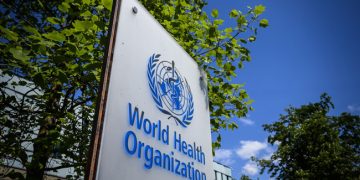In an effort to limit the novel Omicron coronavirus type, the regional director of the World Health Organization in Africa, Matshidiso Moeti, encouraged countries to follow science rather than impose flying bans on Sunday.
“With the Omicron variant now discovered in several regions of the world, putting in place travel bans that target Africa attacks global solidarity,” said Moeti.
Fears that the Omicron strain is extremely infectious have put doubt on worldwide attempts to combat the coronavirus epidemic, leading countries to reintroduce measures that many had thought were no longer necessary.
“Travel restrictions may play a role in slightly reducing the spread of COVID-19 but place a heavy burden on lives and livelihoods,” the WHO said in a statement.
“If restrictions are established, they should not be unnecessarily invasive or intrusive, and should be scientifically based,” the UN body said.
As scientists seek to assess the new strain’s hazard level — particularly whether it may dodge existing vaccines — a South African doctor said dozens of her Omicron-infected patients showed very moderate symptoms like fatigue.
Travel restrictions have already been imposed on southern Africa by a number of nations, including vital travel hub Qatar, the United States, the United Kingdom, Saudi Arabia, Kuwait, and the Netherlands.















